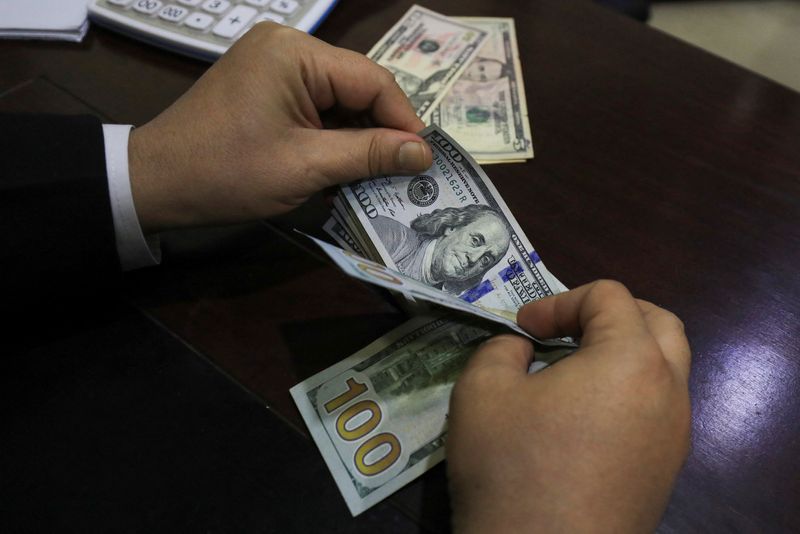Kevin Buckland
TOKYO (Reuters) – The U.S. dollar fell to a one-week low against major currencies on Tuesday as traders weighed whether President-elect Donald Trump’s tariffs would be less aggressive than promised.
The dollar fell against currencies such as the euro and pound sterling on Monday after the Washington Post reported that Trump aides were exploring plans to apply tariffs only to sectors deemed critical to U.S. national or economic security.
However, the currency partially strengthened after Trump denied the report in a post on his Truth Social platform.
The index, which measures the currency against the euro, pound sterling and four other rivals, was down 0.14% at 108.16 as of 0600 GMT, after falling to 107.74 overnight, its lowest level since Dec. 30 .
On Jan. 2, the index rose to 109.58 for the first time since November 2022, largely due to expectations that Trump’s promised fiscal stimulus, regulatory cuts and tariff hikes would boost U.S. economic growth.
“His (Trump’s) universal tariffs of 10-20% were always considered unlikely in such a strict form – so the Washington Post report reinforced that widespread belief, even if Trump downplayed it,” Chris Weston said. Pepperstone Research Director.
“Clearly, the last thing Trump wants at this point is to lose his bargaining power and authority…even if the WaPo reports eventually become a reality.”
The eurozone has been a particular target of Trump’s tariff threats, with the euro up 0.08% to $1.039825 after jumping to a one-week high of $1.0437 on Monday.
Sterling rose 0.14% to $1.25395 after rising to $1.2550 in the previous session.
However, the dollar added 0.14% to 157.83 yen, having earlier risen to 158.425 yen for the first time since July 17, supported by higher U.S. Treasury yields.
The yen may also have been sold as investors adjusted positions at the start of the new year, said Shinichiro Kadota, currency strategist at the firm. Barclays (LON:), which forecasts that the dollar will be 158 yen at the end of March.

The risk-sensitive Australian and New Zealand dollars resumed their gains, rising 0.35% to $0.6268 and 0.47% to $0.5670.
In cryptocurrencies, Bitcoin was little changed at around $101,688, trading at its highest level since December 19.


